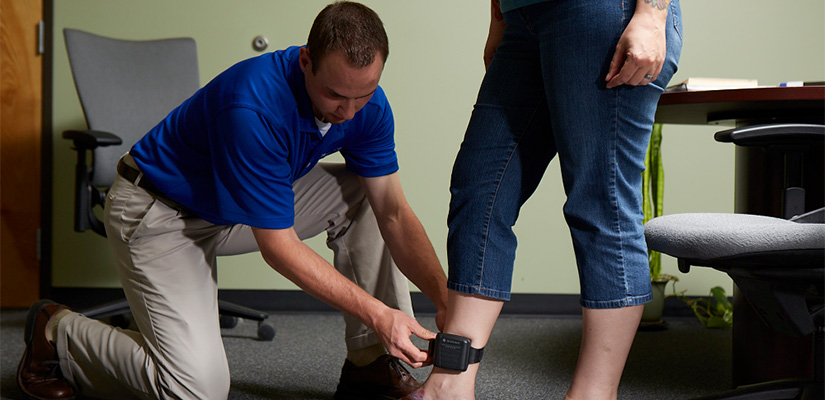If you have been granted probation, it means the judge determined you were eligible to have a term of custody in jail or prison suspended for a misdemeanor or felony conviction, pending successful completion of your probationary period.
Probation allows you to complete your sentence while being supervised in the community. Probation can be served informally (“summary probation”), without being assigned to a probation officer; or formally (“felony probation”), which requires that you report to a county probation officer on a regular basis.
The court sets terms and conditions of probation that you must comply with during your conditional release from custody.
If you successfully complete your probation, you may be entitled to have your conviction dismissed if you pled guilty or no contest, or have your conviction set aside if a jury returned a verdict of guilty at trial.
Pursuant to California Penal Code Section 1203.3, if you violate any of the conditions of your probation, your probation can be modified, revoked or terminated at the judge’s discretion. If the court terminates your probation, the court may sentence you to a jail or prison sentence up to the maximum penalty allowed by law.
What Can You Expect if You are Accused of Violating Your Probation?
- You can be arrested. If you fail to comply with any of the terms of your probation, the court may issue a warrant for your arrest. Alternatively, if you are required to report to a county probation officer (formal or felony probation), he or she may arrest you on site.
- You may be eligible to post bail. If you are arrested and taken into custody on suspicion that you violated your probation, you may be eligible to post bail and be released from custody pending a probation violation hearing.
- You face a probation violation hearing. A probation violation hearing allows you’re your criminal defense attorney and the District Attorney’s office to present evidence and testimony to the court to show whether or not you violated the terms of your probation.
- Your probation can be revoked and reinstated. If the judge finds you violate one or more of the conditions of your probation, he or she has broad authority to modify, revoke or terminate your probation. For a first probation violation, the judge may reinstate your probation with or without changing your probation conditions.
- Your probation term can be increased. If the judge decides you violated your probation, he or she can increase the length of your probationary period. For example, a three-year term of probation can be extended to up to five years.
- The conditions of your probation can be changed. If a judge decides you violated your probation, he or she has the option of modifying the terms of your probation to reflect the rules you broke. For example, if you violated your probation by using illegal drugs, the judge can add a condition that you complete a drug counseling program.
- Your probation can be revoked and terminated. If the judge decides that probation is no longer in the best interests of justice, he or she can terminate your probation and order you to complete the remainder of your sentence in custody.
- You can be fined. The judge can impose a monetary fine up the maximum allowed by law as an additional condition of probation.
- You get credit for time in custody you have already served while on probation. If when you were first convicted and placed on probation the court ordered you to serve jail time, you will receive “credit” for the time you served against your new sentence if the court revokes probation and does not reinstate it.
- You face prosecution for any new criminal charges. If you violated your probation because you allegedly committed a new crime, you face prosecution for the new charges in addition to possible revocation of your probation.
At a probation violation hearing, the court must decide if you violated any of the terms of your probation. The burden of proof on the prosecution is much less than the “beyond a reasonable doubt standard” they must prove at a trial. At a probation violation hearing, they must merely convince the judge by a “preponderance of the evidence” that you violated your probation. This is commonly viewed as meaning by 51% of the evidence standard or that it is “more likely than not” that you violated at least one of the terms of your probation.
Additionally, you are not entitled to a jury at a probation violation hearing. The judge has final authority.
However, you may have to serve time in jail as a condition of having your probation reinstated. It is common for a judge who decides to reinstate your probation (in effect, giving you another chance) to require that you serve from 30 to 365 days in jail as a new condition of your probation..
Contact Wallin & Klarich if You Have Been Accused of Violating Your Probation
If you or someone you care about has been charged with violating probation, 
you should contact an experienced criminal defense attorney at Wallin & Klarich today. If your probation is revoked, you may have to serve your entire sentence in jail or prison.
The attorneys at Wallin & Klarich have over 30 years of experience successfully defending our clients accused of violating probation.
With offices in Los Angeles, Sherman Oaks, Torrance, Tustin, San Diego, Riverside, San Bernardino, Ventura, West Covina and Victorville, our attorneys at Wallin & Klarich will fight hard to help you get the best possible result in your case.
Call us today at (888) 280-6839 for a free phone consultation. We will be there when you call.



